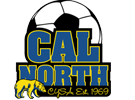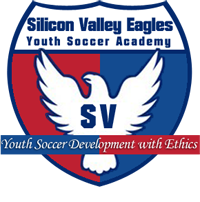 We all know — games are more fun. More fun for the kids. More fun for the parents. In a typical training session, the most common question asked by the players is “when are we going to scrimmage?” As trainers, we have been taught to let the “game be the teacher” but, why is training more advantageous to developing players than games? The answer is MATH.
We all know — games are more fun. More fun for the kids. More fun for the parents. In a typical training session, the most common question asked by the players is “when are we going to scrimmage?” As trainers, we have been taught to let the “game be the teacher” but, why is training more advantageous to developing players than games? The answer is MATH.
In a typical training session, each player has a ball. It may be that the ball per player ratio is 1:1, 2:1, 3:1, or 4:1 (depending on age and activity), but in almost all cases is the ratio better than 22:1 (or 16:1 for 8v8), which is what you get in a game. In other words, as a parent, ask “how often is my child touching the ball in training versus a game?” That, among other benefits, is the advantage that training has over game play.
Tom Turner, a prolific writer and proponent of player development, breaks down the touches on a ball thus:
...




 Making it in soccer is difficult. Training programs and players have improved dramatically in the past 15 years. Worldwide exposure has grown the sport and our knowledge about the development of elite athletes is progressing every day. To make it to the elite levels of soccer it takes a combination of skill, resources, luck, and opportunity. But even on this treacherous development journey, a player still has a lot of control. Through observation and research, we have learned that elite youth athletes exhibit similar thinking processes and behavior.
Making it in soccer is difficult. Training programs and players have improved dramatically in the past 15 years. Worldwide exposure has grown the sport and our knowledge about the development of elite athletes is progressing every day. To make it to the elite levels of soccer it takes a combination of skill, resources, luck, and opportunity. But even on this treacherous development journey, a player still has a lot of control. Through observation and research, we have learned that elite youth athletes exhibit similar thinking processes and behavior. The biggest mistakes I see from youth soccer coaches, whether they be parent, or worse, they are paid to coach, is the failure to follow teaching progressions and failure to communicate with youth players. Coaches that teach complex ideas using foreign soccer jargon to 8-12 year old “competitive” soccer players waste time. It also waste an opportunity to teach. Why do we do it?
The biggest mistakes I see from youth soccer coaches, whether they be parent, or worse, they are paid to coach, is the failure to follow teaching progressions and failure to communicate with youth players. Coaches that teach complex ideas using foreign soccer jargon to 8-12 year old “competitive” soccer players waste time. It also waste an opportunity to teach. Why do we do it? It is that time of year again…tryouts for youth soccer teams. Or rather, it is the hunting season for clubs and coaches to recruit players and find new investors. So, having 5 kids in the system and being a licensed coach, I thought I would add a list of questions and answers for parents for this time of year. I seem to keep having the same conversations so it would be easier just to put the information here:
It is that time of year again…tryouts for youth soccer teams. Or rather, it is the hunting season for clubs and coaches to recruit players and find new investors. So, having 5 kids in the system and being a licensed coach, I thought I would add a list of questions and answers for parents for this time of year. I seem to keep having the same conversations so it would be easier just to put the information here: We are halfway through what soccer coaches refer to as “camp season.” This is the time that paid coaches for clubs have available time to make some extra money in the form of “camps.” And that is the first thing that your should know … camps are about money to clubs and coaches not skill development of individual players.
We are halfway through what soccer coaches refer to as “camp season.” This is the time that paid coaches for clubs have available time to make some extra money in the form of “camps.” And that is the first thing that your should know … camps are about money to clubs and coaches not skill development of individual players.

